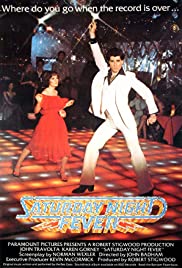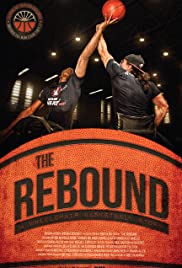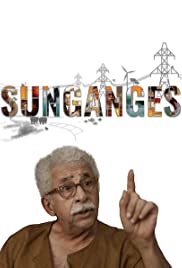
If you thought TV shows in which audiences and juries judge musical acts were a relatively new phenomenon, you’d better think again. In the 1970s, such “festivals” were incredibly popular in Brazil. They were recorded before a live studio audience, and usually featured a number of elimination rounds. They also formed the springboard for the career of many a big-name star, such as Chico Buarque, Caetano Veloso, Roberto Carlos and Gilberto Gil. Appearing on such a program was no cakewalk, however: audiences could be as wild in their condemnation as in their appreciation of an artist. Extensive archive footage (including performances and behind-the-scenes interviews) from a turbulent final of the Festival of Brazilian Popular Music one evening in 1967 paints a fascinating picture, not only of the transformation of Brazilian music into real “festival” music, but also of a society starting to buck against the yoke of military rule.
You May Also Like

Amidst today’s urban jungle of concrete, glass and metal, it is easy to forget that we actually live in the territory formerly dominated by wildlife. Many of its members have been exterminated by humans, while others have fled the sprawling urbanization to the surrounding countryside. It is their survival strategies that get revealed in exciting detail in the documentary series, Planet Czechia. For two years, a team of camera operators headed by Jan Hošek were recording a life cycle of Prague’s wild animal world across all seasons of the year. The film, accompanied by the commentary read by the actor Jiří Macháček, registers everyday struggles of the fat dormouse, the mouflon, blackbirds or the water hen, teaching the viewers in a casual manner a higher degree of tolerance toward the city’s overlooked inhabitants.

Through his ever changing reinvention, Bowie has become a symbol for fearlessness, innovation and creativity. He has become a true icon. A Phenomena that people will always remember, as he altered music forever.

On Aug. 28, 2016, Tim Bergling, better known as Avicii, graced the stage of the Ushuaïa nightclub in Ibiza for what would be his final performance.

Tony Manero is a Brooklyn paint-store clerk who’d give anything to break out of his dead-end existence. In life, Tony is a peasant; on the disco dance floor, he’s a king. As the soundtrack plays one Bee Gees hit after another, white-suited Tony struts his stuff amidst flashing lights and sweaty, undulating bodies. Tony’s class aspirations are mirrored in his relationship with his dance partner, a secretary eager to move into the glamorous world of Manhattan.

Documents the closure of Rhythm House, Mumbai’s oldest music and video store, that went out of business last year due to piracy.

After a disappointing loss during the national championships, local wheelchair basketball team are ready to come back together and give their all in the forthcoming season. In community-supported wheelchair basketball programs across the country, players push each other physically, mentally and emotionally in order to succeed against the odds, struggling with the challenges of dedicating oneself to a sport that does not garner the recognition or resources granted to other professional athletic organizations—wheelchair basketball is all too often regarded as a sort of charity instead of the riveting competitive sport that it is. The Miami Heat Wheels are ready for their second shot at winning the nationals, but lack of funds and personal problems threaten to put an end to the dream before the season reaches its tension-riddled conclusion.

In 1984, Midnight Oil released their iconic record Red Sails in the Sunset. They embarked on a relentless tour around the nation performing raw and electrifying music that reignited the imagination of young Australians. That same year, their lead singer Peter Garrett committed to run for a Senate seat for the Nuclear Disarmament Party. With the mounting pressure of balancing the demands of music and politics this is the year that would make, but nearly break, Australia’s most important rock and roll band. Thirty years in the making and featuring never seen before seen footage of the band on and off the stage, Midnight Oil: 1984 is the untold story of the year Australia’s most iconic rock band inspired the nation to believe in the power of music to change the world.

From boxing heavyweight to poker lightweight. Can David Haye defeat Goliath, the world’s biggest live poker tournament.

Inspiring celebrities and influential Latinos come together to “speak loudly” and share their stories of being Latinos in the U.S.

A panoptic film on water, energy and climate, SunGanges (SuryaGanga) is a wild and intense ride three filmmakers take across the vast Indian landscape in an attempt to connect the dots between vanishing rivers, massive energy projects and the quiet rise of renewable energy.

In this documentary, Chelsea Handler explores how white privilege impacts American culture — and the ways it’s benefited her own life and career.

Marion Stokes secretly recorded television 24 hours a day for 30 years from 1975 until her death in 2012. For Marion taping was a form of activism to seek the truth, and she believed that a comprehensive archive of the media would be invaluable for future generations. Her visionary and maddening project nearly tore her family apart, but now her 70,000 VHS tapes are being digitized and they’ll be searchable online.